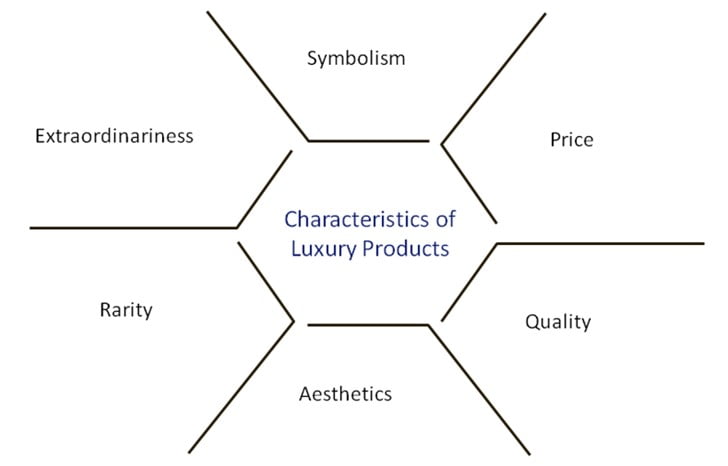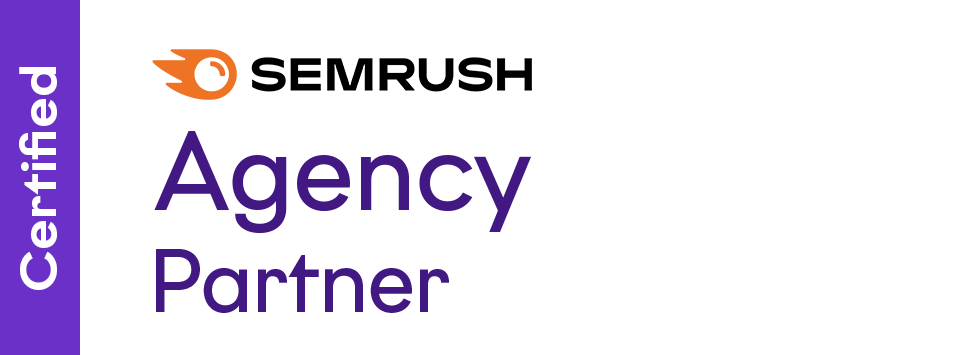The allure of luxury brands, from the tactile pleasure of a Chanel bag to the status symbol of a Marc Jacobs wallet, remains undiminished in the hearts of consumers worldwide. Despite economic fluctuations, the desire for these high-end products persists. This post delves into the strategies that make luxury brands irresistible and explores how these tactics are evolving in the modern age.
Understanding the Luxury Consumer in 2023
Luxury marketing hinges on a deep understanding of your target audience. A study by The California Institute of Technology, in collaboration with Stanford University scholars, revealed a fascinating insight: people tend to rate products higher if they believe they are more expensive. This phenomenon underscores the intrinsic value consumers place on luxury goods, associating higher costs with greater pleasure and status. Today’s luxury brands must navigate these nuances, aligning their marketing strategies with the evolving preferences and values of their consumers, especially in an era where personalization and exclusivity are highly prized.
Innovative Branding and Positioning
Innovative brand positioning is crucial in luxury brand marketing. Brands like Chanel and Gucci have set a benchmark by creating images that symbolize more than just products; they represent lifestyles and aspirations. This achievement is not solely based on the quality of their offerings but also on how these brands position themselves in the minds of consumers.
Modern luxury brands are leveraging digital platforms and influencer partnerships to amplify this effect. They’re not just selling products; they’re selling a dream, an aspiration. The key lies in crafting a narrative that portrays their products as essential elements of a desirable lifestyle, thus creating a powerful and aspirational brand image.
How you can do this for your luxury brand? Here’s some tips from our team of digital marketing experts:
- Craft a Compelling Narrative: Develop a brand story that transcends the product and taps into the aspirations and lifestyles of your target audience.
- Utilize Digital Platforms Strategically: Leverage digital platforms to showcase your brand’s narrative and lifestyle, ensuring consistency in messaging across all channels.
- Collaborate with the Right Influencers: Partner with influencers who align with your brand’s values and can authentically convey the lifestyle your brand represents.
- Focus on Experiential Marketing: Create experiences that allow consumers to engage with your brand on a deeper level, reinforcing the aspirational lifestyle.
- Consistent Brand Image: Ensure that every aspect of your brand, from product design to marketing campaigns, consistently reflects the lifestyle and aspirations your brand stands for.
Selling the ‘dream’ lifestyle
Selling the ‘dream’ lifestyle is an art form in luxury brand marketing, particularly on social media platforms like Instagram. To effectively do this:
- Showcase Aspirational Content: Share content that reflects an aspirational lifestyle, like exclusive events, high-end products, and luxury experiences.
- Leverage Influencers: Collaborate with influencers who embody the lifestyle your brand represents. Their portrayal of your products as part of a desirable lifestyle can have a significant impact.
- Create a Cohesive Brand Image: Brands like Chanel and Gucci don’t just sell products; they sell a lifestyle. Ensure your brand image, from product design to marketing materials, aligns with the aspirational lifestyle you’re promoting.
- Engage Authentically: Engage with your audience in a way that makes the dream lifestyle feel attainable and inclusive, encouraging followers to envision themselves in that lifestyle.
- Narrative Storytelling: Use storytelling to create a narrative around your brand that goes beyond the products, weaving in elements of the lifestyle you are promoting.
By incorporating these strategies, you can effectively market a luxury brand by selling not just a product, but a dream lifestyle.
Behind the science of spending big
A study by The California Institute of Technology (Caltech), in partnership with scholars from Stanford University, revealed intriguing insights about consumer perceptions. Participants tasted wine while their brain activity was monitored using MRI scans. Remarkably, when they were informed that the second wine was significantly more expensive than the first, their brain activity showed a noticeable increase.
This finding underscores a key aspect of consumer psychology: higher-priced products often elicit stronger feelings of excitement and satisfaction. This phenomenon is particularly relevant in the luxury market, where the allure and perceived value of high-end products play a pivotal role. For luxury brands, success hinges on understanding and leveraging this psychological association, which requires in-depth research and analysis of consumer behavior.
Digital Marketing Innovations
The luxury industry is at the forefront of embracing augmented reality (AR) and virtual reality (VR) for immersive customer experiences. These technologies allow brands to create virtual spaces that reflect their real-world luxury and exclusivity, offering a unique way to engage with tech-savvy consumers. However, implementing AR and VR can be costly and may not be feasible for smaller brands or those with limited resources.
For brands facing such constraints, here are some tips to innovate within a budget:
- Start Small with AR/VR: Instead of full-scale implementations, consider smaller, more focused AR or VR experiences that require less investment. For example, an AR app that allows customers to try on accessories can be a cost-effective start.
- Leverage Social Media Filters: Platforms like Instagram and Snapchat offer AR filters, which can be a budget-friendly way to give customers a taste of AR experiences.
- Collaborate for Technology Access: Partner with tech companies or startups specializing in AR/VR. This can reduce costs and provide access to expertise.
- Focus on Quality Content: Even without AR/VR, high-quality, engaging digital content can effectively convey a brand’s luxury and exclusivity.
- Utilize Existing AR/VR Platforms: Explore platforms that already offer AR/VR experiences where you can showcase your products without the need for extensive development.
By balancing the use of cutting-edge technologies with cost-effective digital strategies, smaller luxury brands can still create innovative and engaging experiences for their customers
Exclusivity and Secret Brand Experiences
The allure of exclusivity remains a powerful tool in luxury marketing. Secret, members-only events and experiences play a crucial role in enhancing brand appeal. These exclusive offerings help build long-term, meaningful relationships with consumers, making them feel valued and part of an elite group. This strategy is particularly effective in countering the impersonality of online interactions, adding a human touch to digital engagements.
- Create Members-Only Events: Host exclusive events such as private viewings, luxury retreats, or VIP gatherings. These events should offer unique experiences not available to the general public.
- Leverage Limited Access: Develop services or products only accessible to a select group, enhancing the feeling of exclusivity.
- Personalised: Add an element of personalisation to your products and services. This
- Partner with High-End Venues: Collaborate with luxury venues to host your events, aligning with the premium nature of your brand.
- Utilize Digital Platforms for Exclusivity: Offer exclusive online content or virtual events for members, blending digital convenience with the luxury of exclusivity.
- Reward Loyalty: Create a loyalty program that offers exclusive benefits and experiences to frequent customers.
The Importance of Storytelling when Marketing Your Luxury Brand
An essential element in luxury brand marketing is storytelling. It’s not just about the products; it’s about the narrative that surrounds them. A compelling story can imbue a brand with depth, heritage, and emotion, connecting with customers on a more personal level. Luxury brands often have rich histories and craftsmanship stories that can be woven into their marketing strategies. This storytelling approach helps to create an emotional connection, making the brand more than just a provider of goods, but a curator of experiences and a symbol of a particular lifestyle. Through storytelling, luxury brands can communicate their values, heritage, and vision, fostering a strong emotional bond with their customers.
Effective storytelling in luxury brand marketing goes beyond mere advertising; it involves creating an immersive world that customers want to be a part of. This can include everything from the brand’s origins and the artisans behind the products to the inspiration behind collections and collaborations. By sharing these stories, luxury brands can differentiate themselves in a crowded market, offering consumers not just a product, but a piece of a larger narrative they can connect with and be a part of.
Sustainability and Ethical Consumption is becoming increasingly important
The landscape of luxury brand marketing is significantly influenced by the growing consumer awareness and demand for sustainability and ethical practices. In response, luxury brands are increasingly incorporating these elements into their business models and product lines. This involves a commitment to using environmentally friendly materials, adopting ethical labor practices, and ensuring a sustainable supply chain. By doing so, luxury brands are not only aligning with global environmental goals but also appealing to a new generation of consumers who value social responsibility and ecological awareness.
Moreover, sustainability in luxury branding often extends to product packaging and marketing collateral, where brands are adopting recyclable or reusable materials. Additionally, many luxury brands are embracing the concept of circular fashion, which includes practices like recycling garments and offering repair services, thereby extending the lifecycle of their products.
This paradigm shift towards sustainability and ethical consumption enables luxury brands to maintain their exclusivity and desirability while showcasing a commitment to global and social well-being. This approach not only enhances brand reputation but also meets the expectations of modern consumers who seek to make responsible and ethical choices. As the luxury market continues to evolve, sustainability and ethical practices are becoming integral components of brand identity and consumer appeal.
Personalization and Customer Experience
The current era’s luxury brand marketing heavily emphasizes personalization and customer experience. With the advent of advanced technologies like data analytics, AI, and automation, luxury brands are now able to offer hyper-personalized experiences that go well beyond basic product recommendations. This strategy involves a deep dive into each customer’s unique preferences, behaviors, and desires, allowing brands to tailor their offerings and interactions to individual needs.
Such personalized engagement is manifest in various forms, from customized product offerings and personalized communication to bespoke shopping experiences and after-sales services. This level of personalization fosters a deeper connection between the brand and its customers, enhancing loyalty and engagement. In the luxury market, where exclusivity and uniqueness are highly valued, personalized experiences become a powerful tool, setting brands apart in a competitive landscape and creating a memorable, long-lasting impression on their clientele.
Globalization and Localization Strategies
The balance between globalization and localization is pivotal for luxury brands. As brands expand their reach globally, they must also adapt to meet the cultural nuances and preferences of local markets. This adaptation involves more than just translating marketing content; it requires a deep understanding of local customs, tastes, and consumer behaviors.
By tailoring their marketing strategies — including messaging, visual design, and customer experiences — luxury brands can ensure their offerings resonate with diverse audiences. This strategic localization helps maintain the brand’s global appeal and identity, ensuring that its messaging is culturally relevant and impactful across different regions. This approach not only enhances brand relevance but also fosters a stronger connection with a diverse customer base worldwide.
Never underestimate your target demographics
Baby Boomers and Gen X may have their reservations about Gen Y, but in the luxury market, millennials are a demographic powerhouse. Accounting for approximately 85% of the industry’s growth, millennials’ affinity for brands like Louis Vuitton and Gucci is unmistakable.
However, this group’s brand loyalty can be fleeting, a contrast to Gen X, known for their steadfast brand loyalty and financial stability, as highlighted by Noah Elkin, a principal analyst at eMarketer. This underscores the importance of a diversified marketing approach: while leveraging platforms like Instagram to engage millennials, luxury brands should also cater to older generations, who possess the means and willingness to invest in luxury lifestyles.
Inclusivity in the luxury industry
Inclusivity in luxury brand marketing is not just a trend; it’s a necessary evolution. As societal awareness grows, luxury brands are increasingly embracing diversity and inclusivity in their marketing strategies.
This shift involves more than just surface-level changes; it requires a fundamental rethinking of how brands communicate with their audience. It means featuring a diverse range of models in terms of race, gender, age, and body type in advertising campaigns, using inclusive language that resonates with a wider audience, and ensuring that brand messaging aligns with values of equity and representation. By committing to inclusivity, luxury brands can deepen their connection with a broader customer base and reflect the diverse world in which they operate.
Final Thoughts
Luxury brand marketing is a delicate balance of innovation, psychological insight, and deep consumer understanding. Brands that succeed in this arena are those that effectively combine aspirational imagery with tangible consumer benefits, catering to the evolving preferences and values of their audience.
As you explore the dynamic landscape of luxury brand marketing, remember that expert guidance can make a significant difference. If you’re looking for tailored strategies to elevate your luxury brand, our team is here to assist. With a wealth of experience in digital marketing, we specialize in crafting bespoke solutions that align with the unique essence of your brand. From developing engaging content to implementing cutting-edge digital strategies, we’re equipped to help your luxury brand shine in a competitive market. Don’t hesitate to contact us for a consultation where we can discuss how to bring your vision to life and drive your brand forward.




















